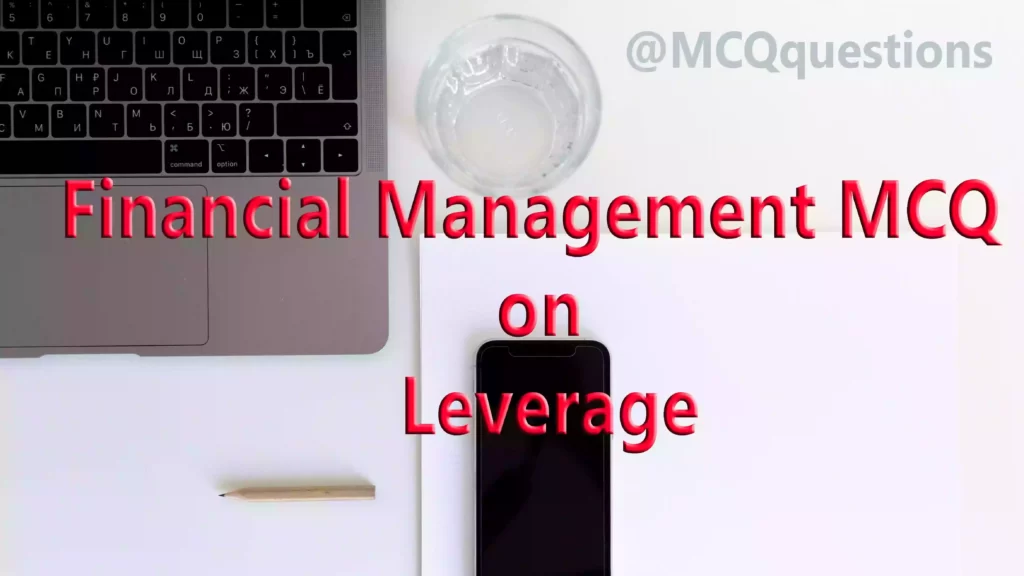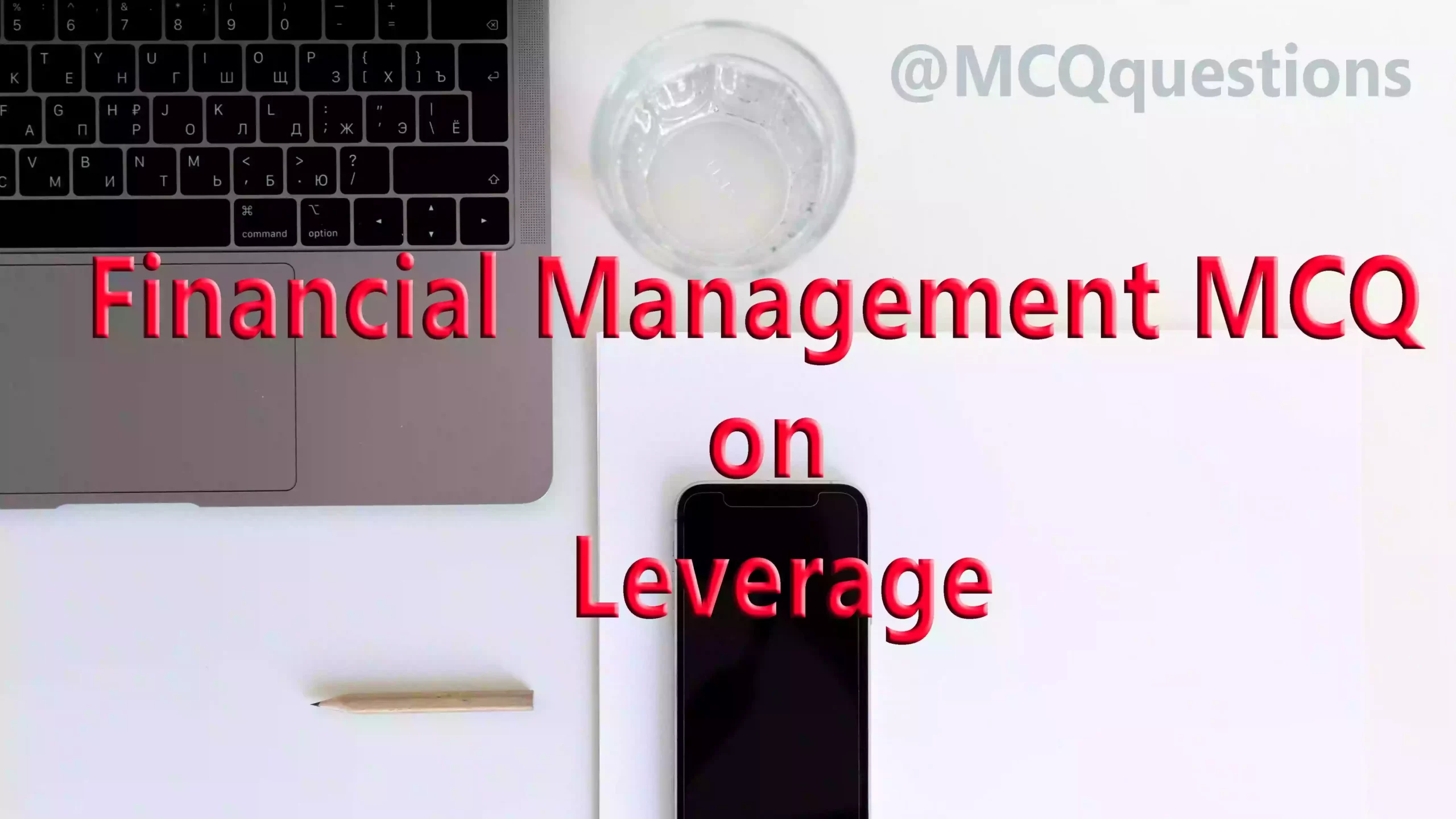Financial Management MCQ on Leverage

Financial Management MCQ on Leverage
1. The costs independent of production, sales or earnings are known as
(a) Variable costs
(b) Total costs
(c) Fixed costs
(d) Marginal costs
Answer (c) Fixed costs
2. Through leverage analysis the financial manager measure the relationship between
(a) Cost and earning
(b) Sales revenue and earning
(c) Costs and sales revenue
(d) Costs sales, revenue and earning
Answer (d) Costs sales, revenue and earning
3. The relationship between the operating income and earnings per share is known as
(a) Financial leverage
(b) Operating leverage
(c) Composite leverage
(d) Working capital leverage
Answer (a) Financial leverage
4. Rent of building, salary of manager, lease payment, depreciation and property taxes are example of
(a) Both of the above
(b) Variable operating costs
(c) Fixed operating costs
(d) None of the above
Answer (c) Fixed operating costs
5. The percentage change in the net operating income resulting from a percentage change in the sales in known as
(a) Degree of combined leverage
(b) Degree of financial leverage
(c) Degree of working leverage
(d) Degree of operating leverage
Answer (d) Degree of operating leverage
6. The ability of an entity to use fixed financial charges to magnify the effects of changes in operating income on the earning per share in known as
(a) Composite leverage
(b) Operating leverage
(c) Financial leverage
(d) Working capital leverage
Answer (c) Financial leverage
7. The percentage change in taxable profit as a result of percentage change in operating profit is known as
(a) Degree of financial leverage
(b) Degree of operating leverage
(c) Degree of working leverage
(d) Degree of combined leverage
Answer (a) Degree of financial leverage
8. The level of earnings before interest and taxes at which earning per share is zero is
(a) Financial break-even point
(b) Indifferent point
(c) Both of the above
(d) None of the above
Answer (a) Financial break-even point
9. Which leverage measures the relationship between the sales, revenue and the taxable income?
(a) Financial leverage
(b) Composite leverage
(c) Operating leverage
(d) Working capital leverage
Answer (b) Composite leverage
10. Which leverage measure the sensitivity of return on investment of change in the level of current assets?
(a) Operating leverage
(b) Composite leverage
(c) Financial leverage
(d) Working capital leverage
Answer (d) Working capital leverage
11. The cost dependent on the level of production, sales or earnings are known as
(a) Variable costs
(b) Total costs
(c) Fixed costs
(d) Marginal costs
Answer (a) Variable costs
12. The relationship between the sales, revenue and operating income is known as
(a) Financial leverage
(b) Composite leverage
(c) Working capital leverage
(d) Operating leverage
Answer (d) Operating leverage
13. The study of the relation between the sales revenue and earning per share with the help of
(a) Financial leverage
(b) Working capital leverage
(c) Composite leverage
(d) Operating leverage
Answer (c) Composite leverage
14. Raw material costs, wages, electricity and other utilities are example of
(a) Variable operating costs
(b) Fixed costs
(c) Total costs
(d) Marginal costs
Answer (a) Variable operating costs
15. Which leverage can be determined with the help of break-even analysis?
(a) Financial leverage
(b) Composite leverage
(c) Working capital leverage
(d) Operating leverage
Answer (d) Operating leverage
16. When an entity earn more on the assets purchased with the fixed cost funds than the fixed costs of their use is known as
(a) Favorable financial leverage
(b) Positive financial leverage
(c) Both of the above
(d) None of the above
Answer (c) Both of the above
17. Trading on equity is possible only when the entity uses
(a) Financial leverage
(b) Composite leverage
(c) Working capital leverage
(d) Operating leverage
Answer (a) Financial leverage
18. The point as which different sets of debt equity ratio gives the same earning per share is known as
(a) Financial breakeven point
(b) Indifferent point
(c) Both of the above
(d) None of the above
Answer (b) Indifferent point
Also Read Financial Management MCQ
